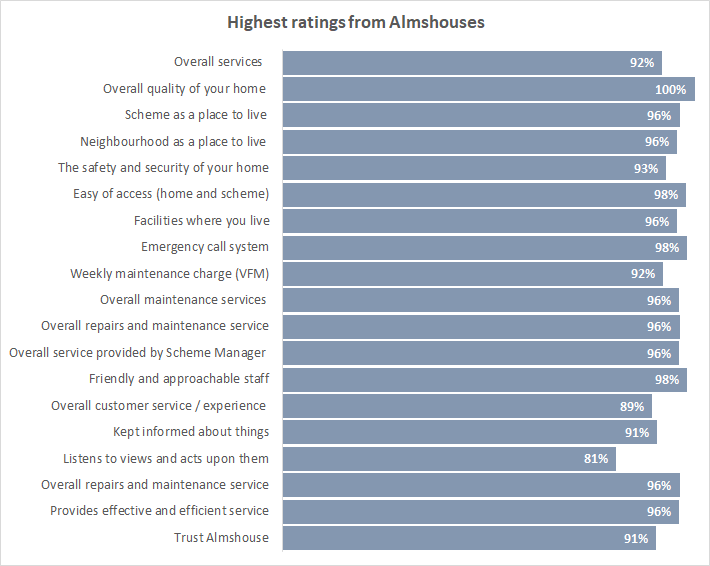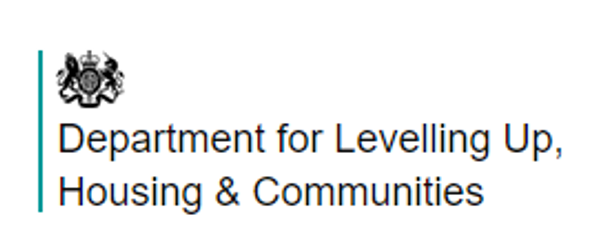Finding out what your residents think is now a way of life in the social housing sector. But some smaller providers have concerns around cost, confidentiality and benefit. We’ve recently been working with some of the smallest landlords in the industry, with under 100 homes – and we’ve all been blown away by the results.
“The survey generally proved so helpful in identifying areas where we were underperforming, confirming areas where we had confidence about our performance and the survey provided the opportunity to compare our satisfaction rating with national supported housing and other almshouses of a similar size,” says Donald Douglas, Chief Executive Officer of Croydon Almshouse Charities, adding: “The board is so pleased with this performance tool they have agreed to undertake the exercise every two years.”
What worries smaller housing providers about surveys?
- “It costs a lot per resident”: it’s true that costs don’t vary enormously whether you’ve got 50 or 500 properties – but that still doesn’t mean you have to spend a fortune.
- “We need a very high response rate”: it’s true that very small samples aren’t statistically reliable. For a five per cent error margin a landlord with 50 units needs 44 completed surveys (an 89 per cent response rate) compared with 357 for the landlord with 5000 properties (a seven per cent response rate) but we can apply common sense. In reality, landlords with under a hundred properties need to achieve response rates of at least 50 per cent and ideally 75 per cent. That’s doable, even more so because it is easier to reach your residents than for larger providers.
- “Residents are scared of being identified”: when there are very few residents, they are more likely to be worried about criticising their landlord or staff. But this isn’t an an issue if you employ an external market research agency, as we can provide confidentiality and – if residents want – anonymity. Sometimes, of course, they want to flag up problems and get them fixed.
- “The results will look faked”: when you get great feedback – as smaller landlords often do – there is always a sceptic who claims it’s made up. Again, using an independent market research agency solves that problem.
- “We know our tenants so what can it tell us?” Using an independent organisation can mean you uncover some hidden truths. It turns most organisations don’t know their customers as well as they think, and we usually discover something that surprises our client.
Here’s how the almshouses scored – could you match their performance?
Imagine how good those providers feel in the certain knowledge that their tenants are so satisfied. One told us: “The survey development and process was easy thanks to the Acuity team. The results have given us a benchmark for improvements for our residents during 2019, and it will help us to focus on what is important to them whilst the organisation continues to modernise and changes are implemented.”
Can we help you, too?
Acuity has been providing resident satisfaction surveys to small landlords for over 20 years. We tailor our service to the size of the landlord and have recently worked successfully with a number of almshouse organisations with under 100 units. Our average response rate in the last year alone is 62 per cent for our almshouse clients, rising to 71 per cent.
Of course, we don’t just provide the raw figures: we will benchmark your quality and service scores on a national basis so you properly understand how you’re performing and can use that to demonstrate satisfaction levels and raise them still further.
Contact us to find out how we can help you.







Comments are closed.